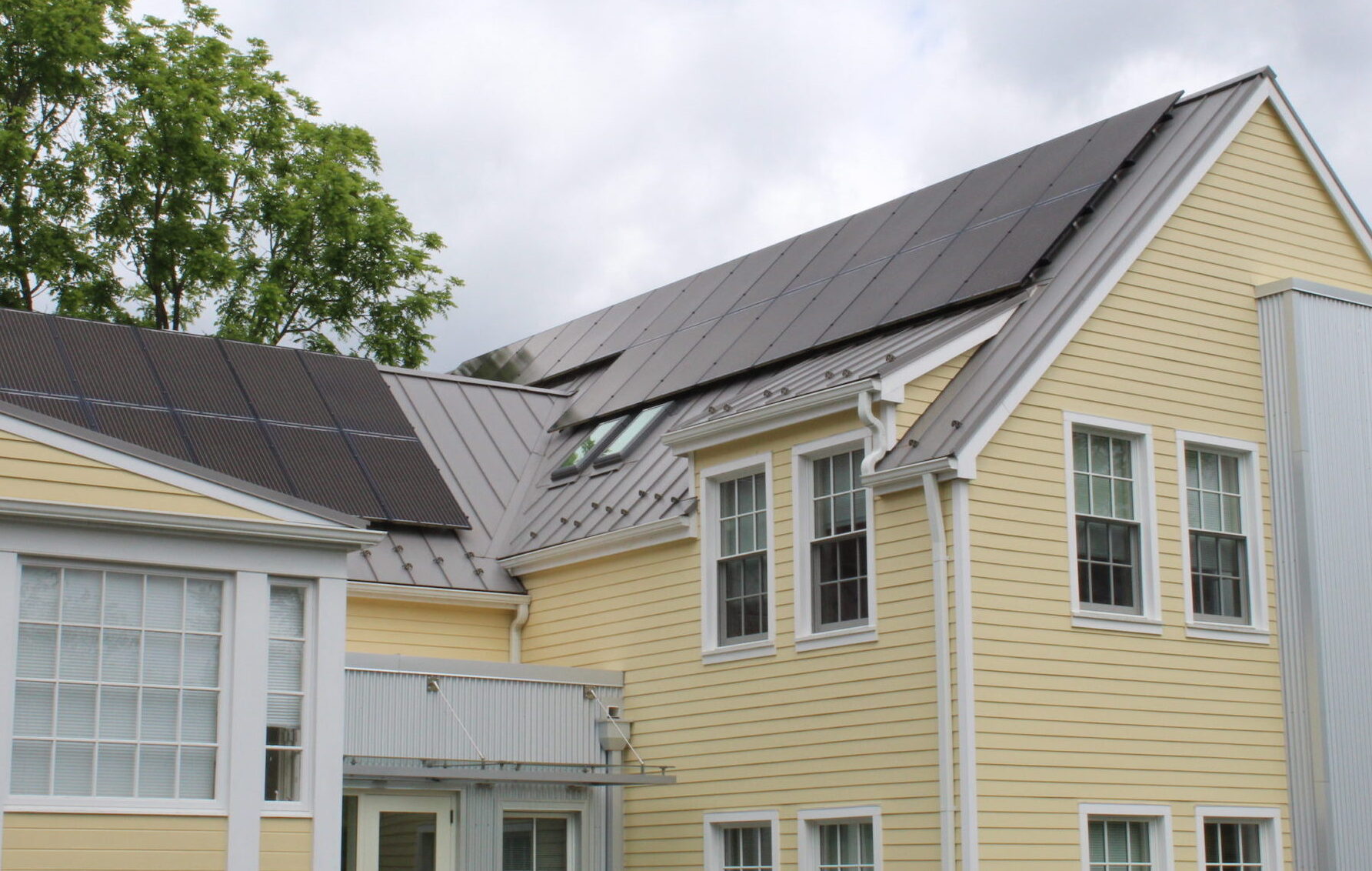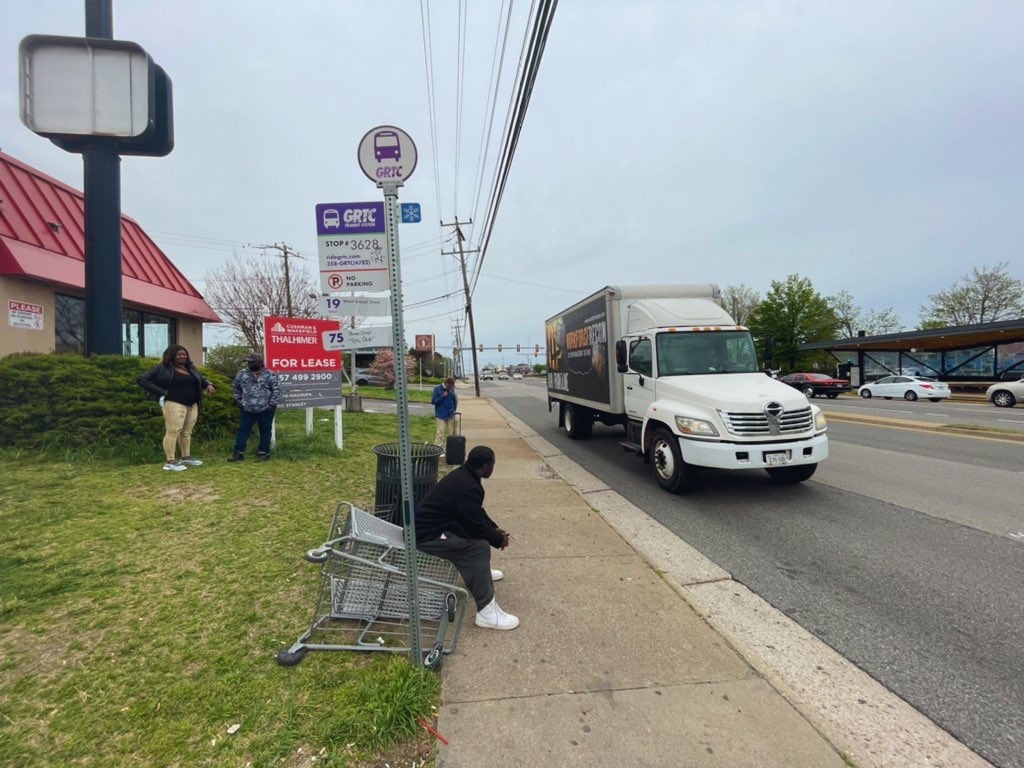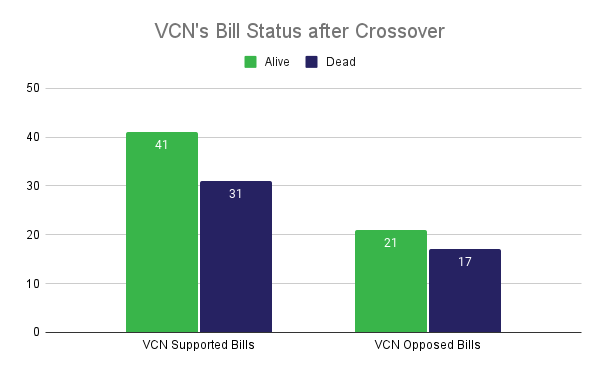Conservation Policy Updates: Week 5 of General Assembly
The General Assembly Crossover Update
It’s “halftime” at Virginia’s General Assembly! We have reached crossover: the day that bills introduced and passed in one chamber of the General Assembly “cross over” to be voted on by the other.
VCN took a position to support, oppose, or remain neutral on 118 bills in just this short session. Now, we are refocusing our advocacy on the 60 bills that remain, along with our budget priorities. See the remaining issues (and budget items!) we will now focus on below.
Where are we in the budget process?
The House & Senate have released their budgets that amend the second year of Virginia’s biennial (2-year) budget. Both chambers are expected to reject each other’s budget proposals, forcing the budget to go to conference: a closed-door budget committee composed of Senators and Delegates. Members of this conference committee will be announced next week. The conference will propose a final budget for FY24 to be voted on before session adjourns. Then, the Governor will review and send edits back during the reconvened session in April. See the status of VCN’s priority budget items here.
Expanding Solar Energy: A series of solar bills will be tested in the House

Through distributed/shared solar, low-to-moderate income Virginians will be able to greater participate in solar programs and offset all or a majority of the costs of a solar energy system. Image Credit: Piedmont Environmental Council (PEC)
Going solar reduces energy burdens and costs for Virginians while making our buildings more energy efficient and clean. Installing more solar is critical for Virginia to hit our 100% clean energy targets outlined in the Virginia Clean Economy Act (VCEA).
Unfortunately, there are many policy barriers in place that hinder rooftop and distributed/shared solar options for Virginians (to learn why, read our “BRINGING MORE RESILIENT ENERGY TO VIRGINIA COMMUNITIES” policy paper).
On the bright side, a series of bills to promote distributed solar have passed through the Senate with bipartisan support and are now headed to the House! These bills will:
- Develop recommendations for schools to be solar-ready when constructing or renovating buildings.
- Expand shared solar programs throughout the state.
- Help Virginia take advantage of federal Inflation Reduction Act (IRA) funds to advance solar projects.
Expanding Solar Energy Bills
To see a full list of all the solar bills, see “Bill of the Day: Expanding Solar Energy.”
(Senator Favola) Develops recommendations on strategies to assist interested school divisions with incorporating renewable energy generation facilities in the construction or renovation of school buildings. Companion to HB1852.
(Senators Edwards & Surovell) Expands the shared solar program to customers in Appalachian Power Company and Old Dominion Power Company’s territories while setting limits on monthly utility bills. This makes our energy transition more equitable by reducing energy costs for participating customers, especially low-income customers who are exempt from the minimum bill.
(Senator Surovell) Allows more Virginians to participate in our clean energy transition by expanding Dominion’s shared solar program and requiring that a customer’s net bill for participating in the shared solar program will not exceed the minimum bill established by the State Corporation Commission (SCC).
(Senator Hashmi) Expands solar and energy efficiency projects for low-income and moderate-income Virginians by empowering the Clean Energy Advisory Board to apply to the Environmental Protection Agency (EPA) for grant funds made available via the Inflation Reduction Act (IRA)’s Greenhouse Gas Reduction Fund.
Both chambers pass bill allowing transit infrastructure and electrification funding

Many bus stops lack adequate infrastructure for riders. Photo by Wyatt Gordon.
The Transit Ridership Incentive Program (TRIP) was developed in 2020 to help transit providers pay for upgrades that don’t fall into typical capital or operating expenses. The original two eligible uses of TRIP funding were:
- Regional Routes: To support the regional connectivity of urban areas with a population over 100,000
- Zero or Reduced Fare: To reduce the barriers to transit use for low-income riders via the zero or reduced fare program.
However, the Transit Equity and Modernization Report calls for electrifying buses and infrastructure improvements to make transit access safer and more comfortable by adding sidewalks, benches, shelters, and improved ADA accessibility around stops.
To address these recently emerging needs, HB2338 and SB1326 amend TRIP to allow up to 30% of the program’s funding for improved accessibility of bus stops and to assist transit agencies in transitioning to zero-emission infrastructure.
Transit Infrastructure & Electrification Funding Bills
(Del. McQuinn) Amends TRIP to allow up to 30% of the program’s funding for improved accessibility of bus stops and to assist transit agencies in transitioning to zero-emission infrastructure. Companion to SB1326.
(Sen. McClellan) Amends TRIP to allow up to 30% of the program’s funding for improved accessibility of bus stops and to assist transit agencies in transitioning to zero-emission infrastructure. Companion to HB2338.
Support the Virginia Conservation Network
Help us continue to advocate for strong conservation policy for Virginia’s natural resources and public health with a donation. We appreciate your support!
















